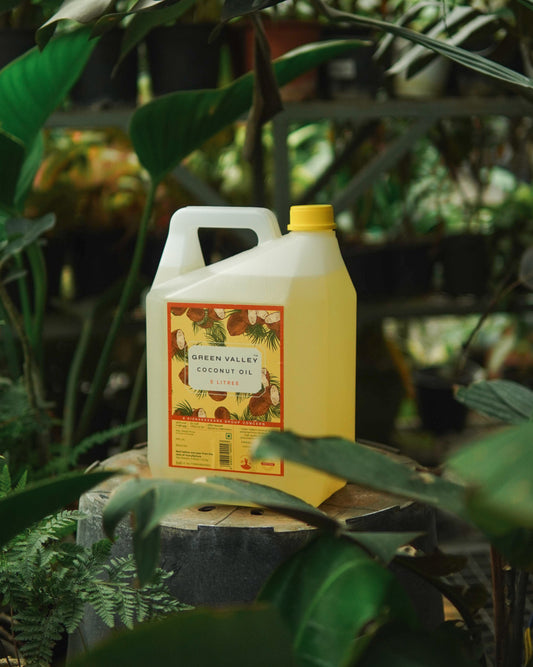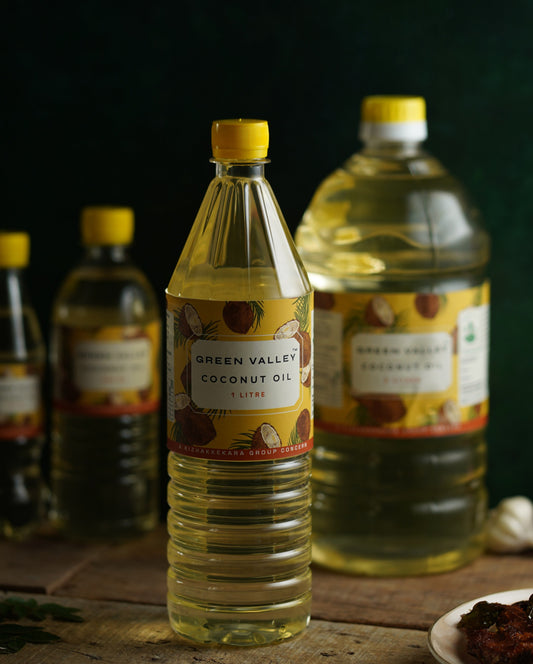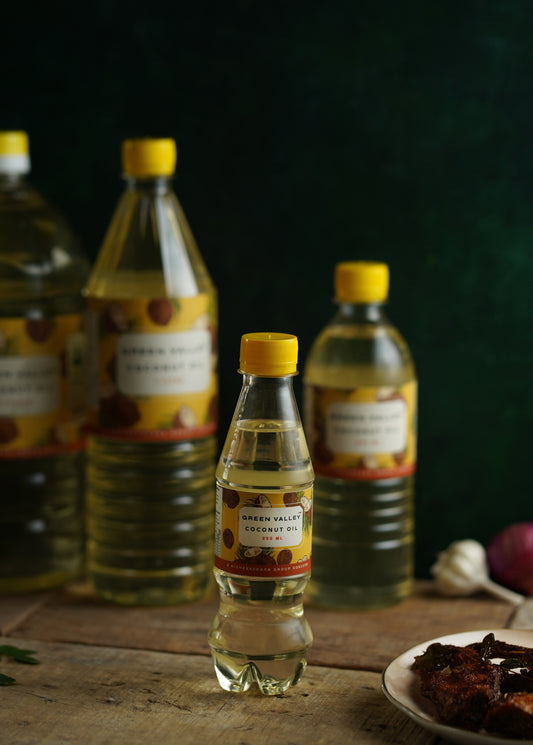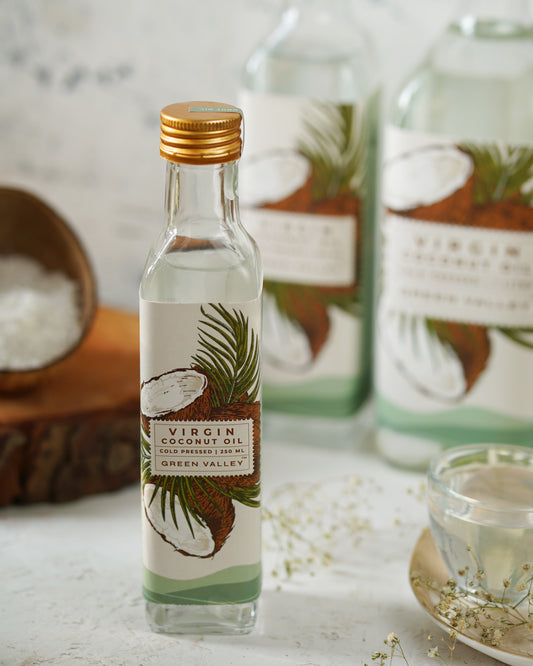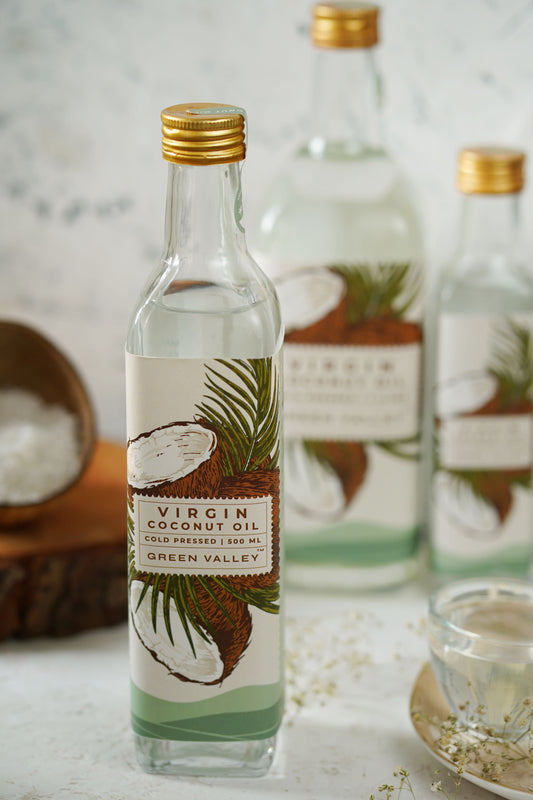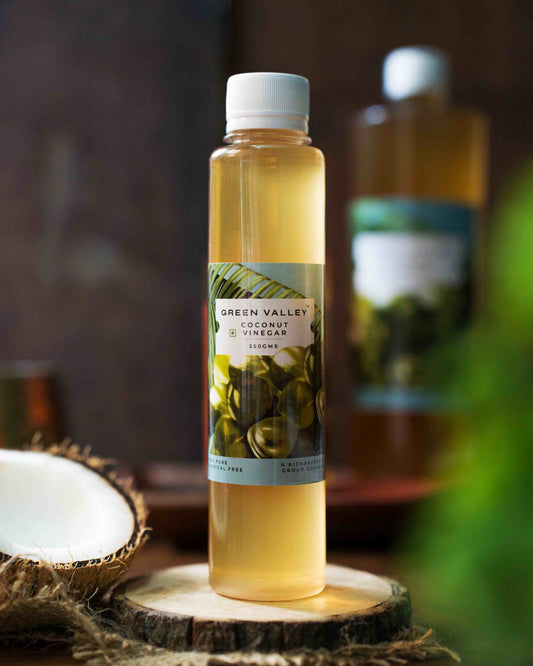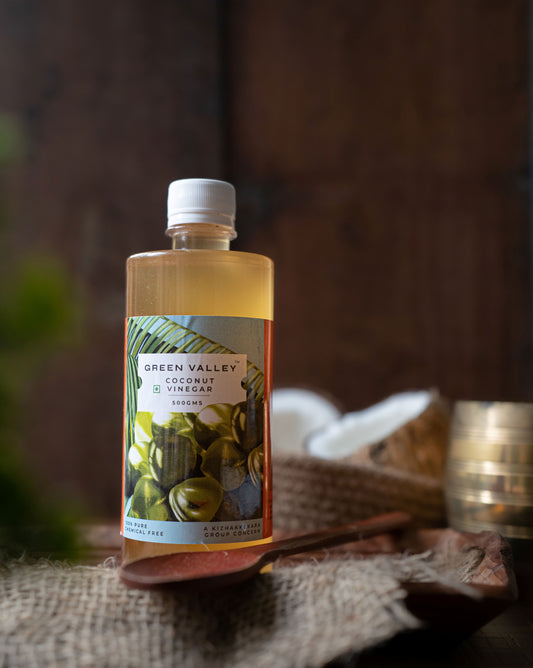If you have been obsessively googling about natural skincare, scouring Reddit for suggestions, and watching 10+ reels every day on how to hydrate your skin, you would have probably come across the battle between Virgin Coconut Oil and Olive Oil.
It is nothing less than an ancient feud that has followed us (and you) all the way to 2024, resulting in you sitting in front of a computer and reading this article.
And boy, do we have answers for you. I wish it were as easy as saying "yes" or "no." But as life has probably taught you by now, multiple-choice answers are something you’ll have to forsake after your fifth-grade semester-end exams.
So, put on your reading glasses (or not if you have 10/10 vision) and get ready for a skincare geek-out session. By the end of the article, I won’t have to tell you which is better; you’ll be equipped with enough knowledge to deduce that by yourself.
What does science think?
Okay, things are about to get a little bit intense. There will be a lot of capitalised alphabets and heavy words thrown around. Yes, we are getting science involved here. But trust me, these will paint a better picture of what these oils are and how they can help your skin.
Nutritional values and benefits of Virgin Coconut Oil
Virgin Coconut Oil and we’re talking about pure coconut oil that is not chemically refined, deodorised, or bleached, is extracted from coconut milk, and has not been exposed to any heat (other than some heated arguments about this very subject).
This very processing technique is what gives it its first medal of distinguishment - the fact that most of a coconut’s natural nutrients are retained in it.
Almost 90% of Virgin Coconut Oil is just saturated fatty acids. These medium-chain fatty acids can be better understood by their components - primarily Lauric and Myristic acid, and Capric, Caprylic, and Palmitic acid present in much smaller quantities.
About 40% of Virgin Coconut Oil is made up of Lauric Acid, a component that has barely had its name published in textbooks or entered popularity contests. It is one of the major components in human and animal breast milk that aids in building immunity in infants during their early stages of development.
The other band of fatty acids, enjoying much less of a spotlight than the Lauric Acid, can also be found in human and animal breast milk and several dairy products.
Apart from the roles they play in enhancing immunity and nutritional levels of your body when consumed, these acids are also excellent moisturisers and contain anti-microbial properties. If you’re a germaphobe, you might want to consider slathering yourself with a generous amount - this is not a scientifically researched and approved method, simply a suggestion. Although keeping in mind one of my recent reads about the production of hand sanitizers from coconut oil, it might not entirely be a far-fetched suggestion.
One of the common applications of coconut oil for its antimicrobial properties is as a soothing agent for inflamed, irritated, and even wounded skin. It also strengthens the skin’s barrier repair functions. A skin barrier essentially protects the body from external threats such as infectious agents, chemicals, systemic toxicity, and allergens and protects from enhanced loss of water from the body.
Studies have even shown that massaging premature babies with Virgin Coconut Oil helped improve their skin barrier. There is yet another study stating that the use of Virgin Coconut Oil has decreased acne and acne-caused inflammation when tested on mouse ears. As to how a mouse’s ears were prone to acne, that’s a subject for another day.
And then there’s a smaller fraction of polyunsaturated fatty acids called linoleic acid and monounsaturated fatty acids called oleic acid in this long list of components in
Coconut Oil also aids in the hydration, repair, and nourishment of the skin.
But that’s not all. It also contains a very small amount of vitamin K - the wizard that performs the function of blood clots and wound healing and vitamin E, a potent antioxidant that prevents free radical damage of the cells, thus helping in the regeneration of skin and soothing inflammations.
Nutritional values and benefits of Olive Oil
If you are a fan of Italian food (as any sane person would be), you ought to love Olive Oil. The Quran states it as a “blessed” fruit, gifted to mankind from heaven, and being a serial Olive Oil chugger, I cannot deny that statement. Greek mythology states it to be a gift from Goddess Athena. Now, it's looking a bit dull for Coconut Oil at this moment, huh?
Olive was one of the oldest trees to be cultivated, with records suggesting as far back as 3000 BC. Folklores and scriptures depict the usage of Olive Oil in multiple civilizations by kings and nobles for smooth and glowing skin.
But is that proof enough that Olive Oil is the ultimate winner? Is it worthy of a spot in your skincare regimen?
Olive Oil mostly contains monounsaturated fatty acids, a staggering percentage of 75%. When consumed it can do wonders in reducing your LDL (bad cholesterol) levels and provide insulin resistance. As far as its benefits in the skin is concerned, it’s excellent for soothing inflamed skin.
It also boasts a high level of squalene, a chemical compound that reduces trans-epidermal water loss (TEWL) to restore skin suppleness and flexibility. In simple words, it stops you from evaporating out all the precious water stored in your body.
Hydroxytyrosol is the next component you’re going to be introduced to, yet another silent hero that deserves more praise. It is a rare and potent polyphenol component that has anti-inflammatory properties. It is composed of phenolic compounds called Oleuropein, Tyrosol, and Caffeic acid, which are natural antioxidants.
Oleic acid is yet another fatty acid present in Olive Oil that reduces inflammatory markers and also helps give your skin a smoother texture.
Note that these components are only present in unrefined and cold-pressed Olive Oil. The antioxidants are often destroyed during the processing or refining of lower-quality oils.
One notable difference between Olive Oil and Virgin Coconut Oil is the levels of Vitamin E and K. While it is found in meagre amounts in Virgin Coconut Oil, its quantity in Olive Oil is much more considerable.
So what is the consensus?
So it’s time for the big reveal. Which one’s better? Olive Oil or Virgin Coconut Oil.
The answer is … neither.
From your reading so far, you might have formed the understanding that either of these oils has a long list of components that have myriads of benefits - all very similar. They are both anti-inflammatory and anti-microbial, aid hydration and nourishment of the skin, and leave it supple and growing.
Oh well, I have wasted my precious time reading an article with no conclusion, you might be thinking. But is any knowledge gained ever a waste?
Let’s not get into philosophy right now.
“But that doesn't help me make a decision”
The only way to make up your mind is to try it out. Different skin types react to different oils. Some might see results that cannot be explained as nothing less than a miracle with Coconut Oil and for some, it might just be a wasted experiment.
Understanding your skin goes a long way in understanding what product works for you.
That being said, these are some factors that you might want to keep in mind.
Virgin Coconut Oil is light and non-greasy and is easily absorbed by the skin while Olive Oil is less denser and lighter and slightly more oily in nature. Virgin Coconut Oil has a pleasant coconut aroma and Olive Oil smells, well, like olives.
Now that you have all the information, it’s time to put it into use. The next step is to get a sample bottle of both and start experimenting.
We would be thrilled to know the results of your learnings, so drop us a Hi or a mail or simply a comment. Extra cookie points for images!!
We’ll be back with equally eye-opening (hold back the boos please) and informative articles. Caio!


